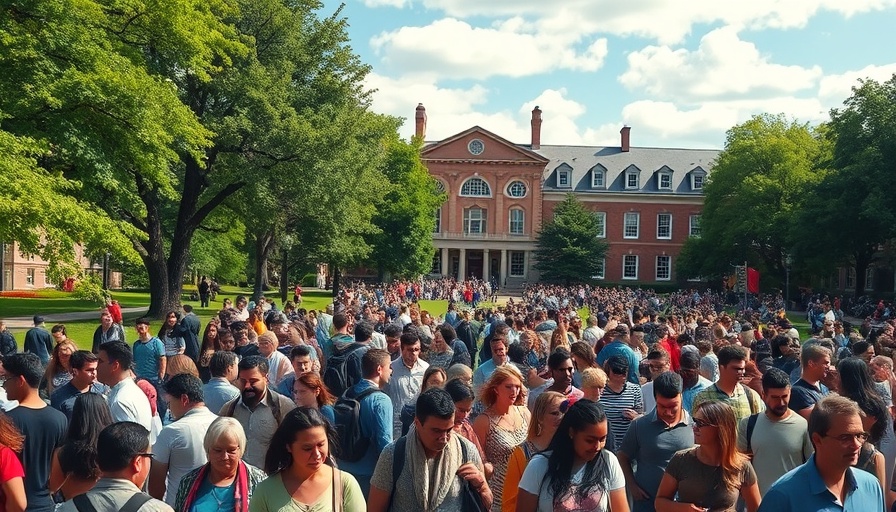
Trump Administration's Surprising Claim About Columbia University
In a bold move that has sparked widespread debate, the Trump administration announced that Columbia University allegedly fails to meet accreditation standards. This assertion raises important questions about the criteria used for evaluating higher education institutions and has elicited mixed reactions from educators and students alike.
The Charge Against Columbia
The Trump administration has cited concerns regarding Columbia's compliance with federal guidelines that ensure institutions uphold rigorous academic quality. The administration's claim comes as part of a broader initiative to hold educational establishments accountable for their educational frameworks and outcomes.
Implications for Higher Education
This allegation has significant implications for higher education, particularly within prestigious institutions that often set trends in curriculum development and social discourse. Many experts argue that if these accreditation standards are manipulated for political ends, it could set a concerning precedent, affecting the autonomy of universities across the nation.
The Reactions
Responses from Columbia University have been assertive. University officials emphasize their commitment to maintaining high standards of education and research, asserting that they have consistently met all necessary criteria for accreditation. Columbia's academic community is rallying against the administration's claims, suggesting that political motivations are driving the criticism, rather than genuine concerns about educational quality.
Understanding Accreditation Standards
Accreditation serves as a validation that institutions meet specific academic standards. Bodies such as the Middle States Commission on Higher Education administer these evaluations. A failure to meet accreditation standards could have dire financial consequences for institutions, possibly impacting federal funding and student enrollment. There’s a chance that a politically charged environment could influence such assessments.
Historical Context: Accreditation and Politics
Historically, the interplay between government and education has been fraught with tension. Political parties have often used higher education to advance specific agendas. In the 1990s, for instance, shifting governmental views on education funding led to audits and reassessments that targeted certain institutions. This raises the question of whether current accusations against Columbia are part of a larger narrative aimed at reshaping educational frameworks across America.
Future Predictions for Educational Institutions
The current political climate implies that universities may face increasing pressure to conform to governmental expectations. It’s plausible that this scrutiny will result in a more standardized approach to education, with significant implications for academic freedom and innovation. Major institutions like Columbia could serve as bellwethers, influencing future trends in educational policies.
The Intersection of Education and Business
With the Bay Area being a hub for innovation and startup culture, this situation at Columbia may resonate deeply with local entrepreneurs and business leaders. As education shapes the workforce, any shifts due to such political pressures could impact the availability of skilled talent in the tech industry and beyond. Business leaders must closely monitor changes in educational policies, as these could ultimately affect hiring practices and local economies.
Considerations for Entrepreneurs and Businesses
The controversy surrounding Columbia University’s accreditation raises vital considerations for business leaders in the Bay Area and beyond. As the educational landscape shifts, startups may need to adapt their hiring strategies, placing a greater focus on skills over degrees to remain competitive. Additionally, as the foundation of knowledge evolves, companies might benefit from engaging with educational institutions to bridge the gap between academia and industry needs.
Final Thoughts: The Role of Higher Education in Society
The ongoing discussions surrounding Columbia's accreditation highlight a key challenge in the evolving landscape of higher education: balancing academic rigor with external pressures. Stakeholders from various sectors, including business and academia, must work collaboratively to ensure that institutions remain vibrant, independent, and capable of fostering innovation and critical thinking.
 Add Row
Add Row  Add
Add 



Write A Comment